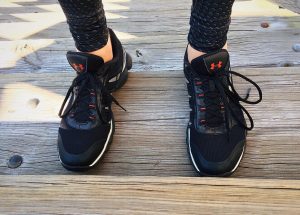 If you’re starting to run or jog, you might think those old sneakers in your closet are adequate. You might be wrong. Having good workout shoes can make a difference when you exercise. They’re the grounding force that stabilizes your entire body. If you don’t have good shoes for your daily run in Livermore, CA, you could be doing damage to your feet. They protect you from foot injuries and help you maintain the proper alignment.
If you’re starting to run or jog, you might think those old sneakers in your closet are adequate. You might be wrong. Having good workout shoes can make a difference when you exercise. They’re the grounding force that stabilizes your entire body. If you don’t have good shoes for your daily run in Livermore, CA, you could be doing damage to your feet. They protect you from foot injuries and help you maintain the proper alignment.
The soles of your shoes are truly where the rubber meets the road.
If your car tires are slick and haven’t had tread for a while, you’re putting your life in danger every time you drive. The same is true for your shoes. They are more important than any other workout clothing and need a precise fit. Your other clothing can be a bit baggy or ill-fitting without much consequences, but the same isn’t true of the shoes. The right shoe meets six different criteria. The heel, instep, width, and length should match your feet. The shoe should also have the proper amount of flex for your foot and made specifically for the sport or exercise.
If you don’t have adequate support, it can cause injury.
If you’ve ever worn shoes to a workout that pinched your foot at any point or were so big your foot slid around inside them, you probably ended the workout quickly because your feet hurt or had blisters. Most people understand that a good fit should be a priority. They often don’t realize the amount of spring makes a difference. The lack of spring makes the shoe useless as a shock absorber if you’re running on pavement. It can cause stress fractures and foot misalignment. Lack of spring can come from the construction of the shoe or overuse.
Choosing quality and the right shoe for your workout is vital.
Injury can cause a big setback, and the wrong type of shoe can promote it. Your foot is complex. It has nineteen muscles, twenty-six bones, over thirty joints, and hundreds of ligaments and tendons. Damaging any one of those can keep you from exercising. Trying to save a few dollars by buying tennis shoes from superstores where you buy groceries and toiletries isn’t the answer. It’s best to use a store carrying only athletic shoes with specialists ready to help you.
- Each type of exercise affects the foot differently. Specialized shoes address those needs. Running shoes protect from the constant pounding. Weight-lifting shoes have hard, stable soles to give a good grip.
- Shop for shoes when your feet are their largest. That’s in the afternoon, evening, or after working out. Wear the socks you’d wear to the gym. Walk in the shoes before you purchase them.
- You don’t have to buy the latest fashion trend. Choose only one outfit appropriate for your exercise. Cross-training shoes are best when you do a little of everything.
- The longer you wear shoes, the more they lose compression capabilities. The National Strength and Conditioning Association—NSCA–suggests retiring running shoes after six months or about 400 miles. The more intense the workout, the sooner you retire shoes.
For more information, contact us today at LIV Fitness
